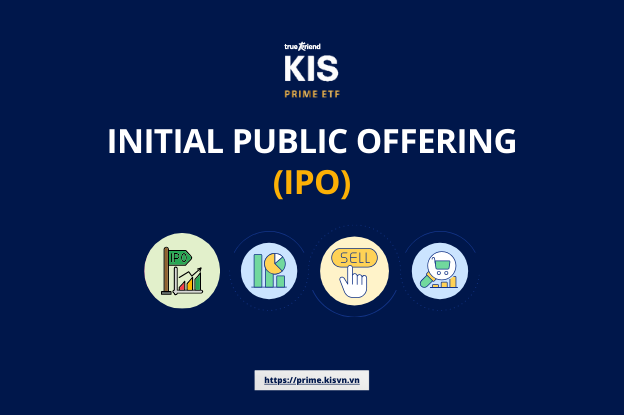ETF Dictionary
Initial Public Offering (IPO)
Explaining the term of Initial Public Offering (IPO) of an Exchange-Traded Fund (ETF). A Beginner’s Guide to Investing in ETFs
1. What is an Initial Public Offering (IPO)?
- An Initial Public Offering (IPO) of an Exchange-Traded Fund (ETF) refers to the process of introducing and selling ETF shares to the general public for the first time.
- IPOs (Initial Public Offerings) work as follows: The FMC issues new shares of an ETF to the public through an underwriting process facilitated by financial institutions or investment banks known as underwriters. These underwriters determine the cost of each share of the ETF and then offer them to the public.
- An ETF IPO allows investors to become initial shareholders in the fund, participating in its performance and growth. The process involves transparency, regulatory compliance, and adherence to market standards.
2. Why did a Company go for an IPO of ETF?
A Company typically considers several key factors when deciding to go for an Initial Public Offering (IPO) of an Exchange-Traded Fund (ETF).
- Capital raising: An IPO allows the FMC to raise capital by issuing a new ETF to the public. This capital can be utilized for various purposes such as expanding operations, investing in its portfolio ETF’s assets, funding research and development, etc.
- Enhancing liquidity: Going public improves the liquidity of the ETF shares. Once listed on public exchanges, investors can easily buy and sell ETFs, which can potentially increase trading volume and liquidity.
- Brand visibility and credibility: An IPO can enhance the brand awareness and credibility of both the ETF and the FMC. Being listed on public exchanges provides exposure to a wider range of investors, analysts, and the general public, thereby building trust and credibility in the market. Offering an opportunity for shareholders or investors to monetize their investments by selling shares to the public which allows them to realize the value of investing holdings and potentially diversify their portfolios.
- Compliance and transparency: Conducting an IPO requires adherence to regulatory standards and disclosure requirements, which fosters transparency and compliance with market regulations. This can enhance investor trust and confidence in the ETF.
Overall, an IPO of an ETF allows the FMC to tap into the broader capital market, increase visibility, and provide liquidity to shareholders, while also subjecting itself to regulatory scrutiny and transparency requirements.
- Note: not all ETFs follow the same IPO process. In some cases, ETF shares are created through a creation and redemption process facilitated by AP-authorized participants, where they exchange a basket of securities for ETF shares or vice versa. This process allows ETF shares to be created or redeemed based on investor demand without the need for an IPO.
- If you are interested in trading ETF, please contact KIS Prime Vietnam for more information.
=> Follow KIS Vietnam to update the latest Vietnam Fund and investment knowledge.
- Website: https://prime.kisvn.vn/
- Vietnam Exchange Traded Fund: KIS Prime
- Knowledge A-Z: Education
